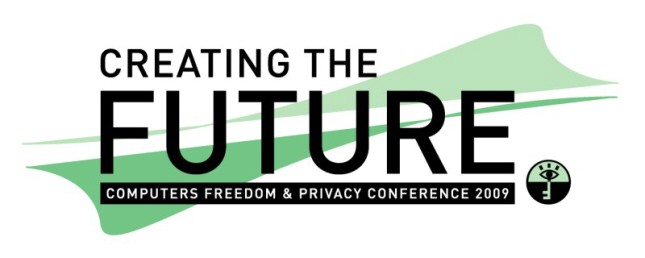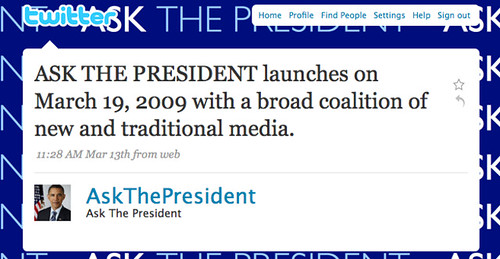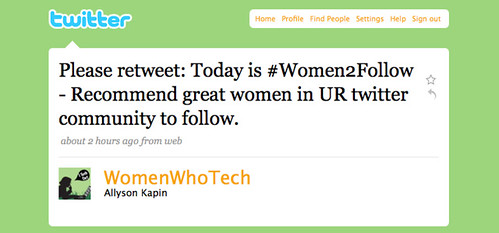 Sunday night, Agency.com relaunched the Skittles* website as a redirect to social network sites. The main page showed a Twitter search for “skittles”. Other links went to flickr, Facebook, and Wikipedia.
Sunday night, Agency.com relaunched the Skittles* website as a redirect to social network sites. The main page showed a Twitter search for “skittles”. Other links went to flickr, Facebook, and Wikipedia.
Hilarity ensued, with “#skittles” shooting to the #1 Twitter term for the day. With over 4000 blog posts and positive articles in the Wall Street Journal, LA Times, the Financial Times and Advertising Age, it’s a viral marketing success story for the ages! Emily Steel’s Skittles Cozies Up to Social Media, David Amaro’s Skittles Goes Modernista! With A Distributed Experience on Logic and Emotion and Tiphereth Gloria’s Why it takes balls to Skittle on Digital Tip are some thought-provoking discussions.
What’s particularly fascinating to me, though, is something Katrin Verclas of MobileActive.org pointed out on the Progressive Exchange mailing list: the significant gender differences in people’s reaction.
Sure enough, the pattern is there in blogosphere as well. I classified the opinions in Skittles articles on the Google News page and a handful of the top hits on Google Blogs as positive, neutral, and negative. The results:
- women: 6 positive, 4 neutral, 0 negative
- men: 12 positive, 3 neutral, 8 negative
And when I say “negative”, whoa baby. David says “By just about any rational indication, Skittles went too far.“  Noah characterizes it as “generally A Bad Idea” and “a gaffe”. Harry sees it as “social-media marketing nihilism.” Riche thinks it’s “the worst strategic decision I have seen online in a long time.” Yow.
There’s no easy way to know how much this reflects an actual difference in opinions. It could be that women avoid harsh criticisms in favor of neutrally-worded posts like Allyson Kapin‘s and Shannon Nelson‘s raising questions about the effectiveness of Skittles’ strategy. One way or another, though, it’s really striking.
 Twitter is an opportunity to engage with communities currently marginalized by the “progressive blogosphere”.
Twitter is an opportunity to engage with communities currently marginalized by the “progressive blogosphere”.
— Tracy Viselli and Jon Pincus, Strategies for progressives on Twitter in The Exception
There’s an important lesson here for anybody trying to understand social media, and Twitter in particular. Make sure you’re getting a range of opinions — as well as gender-based differences, there are also age-based differences. In particular, if you’re getting your political news from the male-dominated “progressive” or “conservative” blogospheres (or the mainstream media and pundits who look to the big bloggers as being on the cutting edge), be aware of the possibility that you’re getting a distorted view of social network sites and their value.**
Today Skittles’ home page instead redirects to their Facebook page. Any bets on how people will react?
jon
PS: in the credit where credit is due department, Modernista! took a similar approach with their own web site almost a year ago. Allison Mooney’s Modernista!’s new siteless site on pfsk has more.
Skittles photo from ambibambie39507’s flickr page,
Twitter graphic from joomlatools on flickr,
both licensed under Creative Commons
* a horrible trans-fat-based chemically-tasting candy, if you ask me, although some people loooooove them.
** see for example my comments in Petitions are soooooo 20th century.
 Sarah Blankinship and I are presented Securing with the Enemy: Social strategy and team of rivals at
Sarah Blankinship and I are presented Securing with the Enemy: Social strategy and team of rivals at 




 In a
In a  One of the challanges with using Twitter for activism is one that’s all too familiar to anybody who’s spent time online: dealing with trolls and other disruptions.*Â Twitter hashtags are completely open, so anybody can post on them, which means we frequently see tweets
One of the challanges with using Twitter for activism is one that’s all too familiar to anybody who’s spent time online: dealing with trolls and other disruptions.*Â Twitter hashtags are completely open, so anybody can post on them, which means we frequently see tweets 